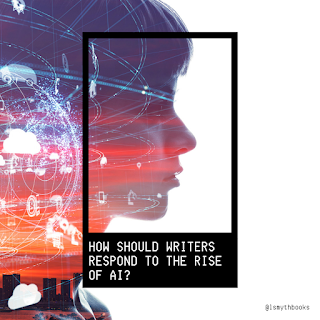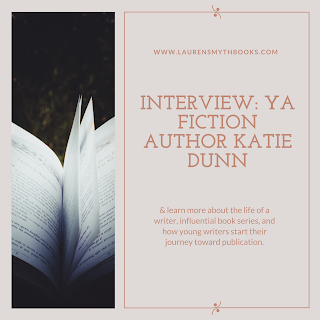On Writing Fantasy
If any of you read this article, you'll remember that at the beginning, I said that most people who read my blog aren't very villainous. That was proved incorrect last weekend when I put a poll out on my Instagram asking for things to write about. Some of y'all are very villainous. For example, a certain someone asked me to write about my favorite serial killers. I would do this, but since that certain someone is my favorite serial killer, he might get arrested. (Kidding, kidding. But you know who you are.) Someone else asked me to write about birds. Someone else suggested 'mutton chops,' which I think is terrifyingly specific. One of the very few non-villains asked me to write about Instagram, which I have already done here.
In the end, the winning suggestion was "paranormal beings." I'm going to take this prompt quite loosely and essentially write about how to construct fantasy within a real-world setting.
A good example of a book that blends real-world with fantasy or unrealistic elements is Yesterday by Felicia Yap, in which characters are categorized as either Monos or Duos and can respectively only remember the past one or two days. (If you haven't read this, I highly recommend it!) Even though this world isn't our world, it's still believable. How does Yap accomplish this?
The first key component to blending reality and fantasy is to make sure that the fantastical elements are strongly grounded in reality. This means that, if you want to have something fly, that something needs to be a creature that people can visualize - an animal, a person, a ghost, some hybrid. It can't be vaguely described as "an ethereal entity" - you'll lose readers if even the characters don't understand what's going on. Interestingly, a show that occasionally fails to blend reality and fantasy believably is Star Trek. Numerous times throughout the series, there are undescribed ethereal beings that play a part in the story from the sidelines, never being characterized or even shown. Because Star Trek never intended to take itself too seriously, this works - sort of. But this technique won't work in books because there's no visual component.
The second key component is making sure you don't have a magic-of-the-gaps fantasy world. If the magic works once, it has to work again. If it fails once, it has to fail again. A new spell that conveniently fits the bill cannot be discovered right at the climax of the story - that's far too convenient. Of course, this doesn't rule out last-minute saves. However, the save needs to be based on something that was established earlier in the story. The idea is to make the reader think "I wish I would've thought of that!"
The third key component is to avoid overpowering your characters. An exception to this rule is making an overpowered villain - one that makes the hero look puny in comparison. Still, the risk with overpowered villains is that the hero will also become overpowered in order to overpower the overpowered villain. It's an endless cycle once it begins. This is not to say that tropes aren't allowed. Tropes exist because they're popular, and one common trope is the OP hero. If you decide to have an OP hero, make sure you intend to do that beforehand.
The fourth and final main key component is perhaps the most important and the most obvious: don't lose track of your guns. According to the famous "чеховское ружьё" or Checkhov's Gun rule, whatever gun is laid on the table must remain there and eventually be used. If you establish at the beginning of the story that the main character can hear through walls, this power needs to be used again. It needs to be explained and developed, and all the downsides need to be explored. Otherwise, nobody pulls the trigger, and there's a loaded gun left right in the middle of the story that could've led to a great idea. It's often helpful to write down ideas as they come so that parts of the story aren't lost along the way. This article, which is actually about writing for video games, talks about how to organize your thoughts so that no thread is left unexplored.
Thanks to everyone who participated in the poll, even those of you who turned out to be villains!
Announcement: Due to low entry volume, the October ending line competition was unfortunately canceled. But don't worry, there will be another! Stay tuned!



Comments
Post a Comment